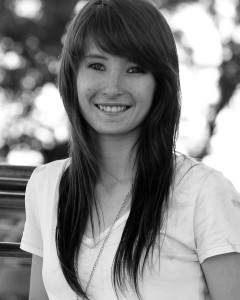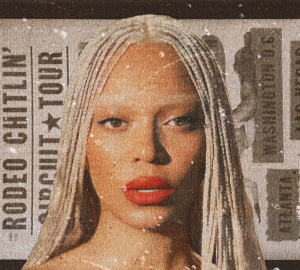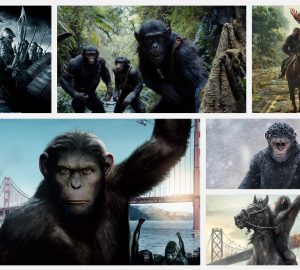As a child, I grew up in an often unpredictable and unstable environment. On this occasion, it was a frigid, three-foot-high snowy winter at our aged, red brick house located on seven acres far from our neighbors. My family and I huddled in blankets on the hard floor around the fireplace, quietly preparing our bodies for rest. It was dark as a hush hung  over our home save the glow and crackle from the fireplace, so when a knock on the door penetrated the silence, we could not immediately see outside because we had no electricity to flip the porch light on.
over our home save the glow and crackle from the fireplace, so when a knock on the door penetrated the silence, we could not immediately see outside because we had no electricity to flip the porch light on.
Once we opened the door, all to be seen were a set of taillights travelling down our long, treacherous driveway and a trail of footprints leading to our front step where cardboard boxes sat full. Before the boxes filled with food made it to our kitchen, we had begun devouring their contents.
We never found out who fed us that winter when we were without power, hot water, and low on food, but I am forever thankful for their donation. They took time to learn we were very much in need, gathered food via donations, and made the journey to our doorstep, leaving before we could give thanks. There are countless stories like mine: others aided through selfless acts of individuals.
According to everyone I surveyed this spring in my speech class at SCAD, 100 percent of the students agreed: philanthropy has a positive effect on people, creatures, and the environment. As both a receiver and a giver of my own time, talents, and resources through philanthropy, I have first-hand experience and am propelled to share my stories with you. I believe everyone should be an active philanthropist because it is beneficial for the individual, is necessary for societal growth, and has positive effects upon the environment.
Active philanthropy is beneficial for the kind individual. To best illustrate, I interviewed my best friend Kaylee Johnson. As SCAD students are wrapping up projects or eating dinner in the U.S., she is beginning her day in China where it’s 8 a.m. Her job? Teaching English to children through the International Language Program. Via Skype, she explained:
“I wanted to go to China because I always wanted to do something like this. It now sometimes seems like selfish service because I’ve probably learned more than I’ve taught the kids … like patience … every time I say ‘Christy, stop kicking Tom!’ I learn more patience so I can help these kids focus, listen and learn.” Since she teaches without speaking Mandarin, the kids replicate her quirky, English phrases. She says, “Oh my goodness” often, so they reply dramatically: “Oh my goodness-s-s-s!” Kaylee says this is when they truly learn laughter. She details her experiences further, “The biggest thing they’ve taught me is love. One day I had a kid crying in class. She had tears streaming down her face … Another boy in class put his arm around her and he was almost in tears. It’s so cute to watch these kids watch out for each other.” These experiences accumulate, she explains, “I feel like I’ve learned more about myself from being with these kids and teaching them than I ever had learned when I was back home and doing stuff for myself. It’s been the biggest growing experience that I’ve ever had.”
Benefits for both givers and receivers are not only apparent when helping people. I have volunteered for humane societies for years back home and now here in Atlanta. My experiences with both the people and animals have greatly impacted my maturity, causing me to be more conscious of my everyday actions and increasing my sense of activism. I feel so strongly that I am capable of so much good — if only I do it. As Albert Einstein stated, “It is every man’s obligation to put back into the world at least the equivalent of what he takes out of it.”
Active philanthropy is necessary for positive societal growth. A pay-it-forward mentality is what I argue to be necessary for the ultimate existence of society. You may have heard of the coming technological singularity through movies like “I, Robot” and “The Matrix”. If an electronically-controlled society sends shivers down your spine, you should investigate pay-it-forward as an equal and opposite Newtonian reaction. As Katherine Fulton of the Monitor Institute illuminates, “The question is, is there a positive social singularity? Is there a frontier for us of how we live together? Our future doesn’t have to be imagined. We can create a future where hope and history rhyme. . . . Philanthropy is . . . humanity’s collective immune response to today’s threats.”
Lastly, active philanthropists have positive effects upon the environment, a critical requirement for the survival of humanity. Without a functioning physical ecosystem complete with other life forms, our society — as we know it — cannot exist. The necessity to protect these resources has thus become apparent. Jared Diamond, author of “Guns, Germs and Steel” has written the book “Collapse” for this reason: it is necessary to compare our current lifestyles to the successes and failures of past societies if we are to truly change our ways to prosper. We must understand: humanity can only be as great as the world it lives in.
John F. Kennedy further illustrates that “It is our task in our time and in our generation to hand down undiminished to those who come after us, as was handed down to us by those who went before, the natural wealth and beauty which is ours…”
Now you may see, I’m not talking about many different ideas. I’m speaking about cultivating positivity within environments via philanthropy: benefiting an individual’s mind — their internal environment; engaging culture-culture — the social environment; and, restoring the natural and built ecosystems — our physical environment. As described by my survey results, everybody believes in the good of philanthropy. Now, I am asking you to do something about it! Spend time today to watch the speech by Katherine Fulton, “You Are The Future Of Philanthropy” on Ted.com, then research projects you can incorporate into your career goals here at SCAD and your life beyond imprint your life’s fingerprint upon. Then tomorrow, do it.
























